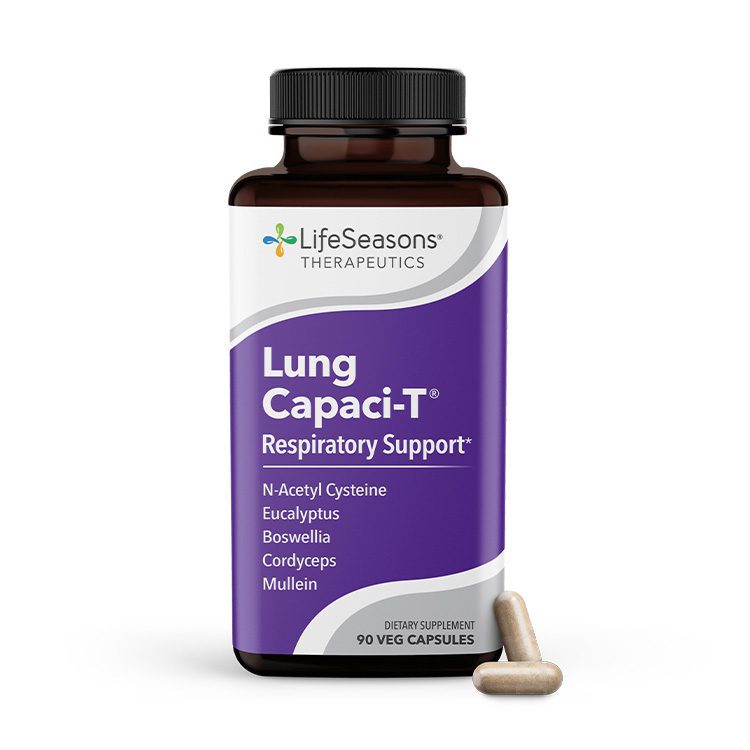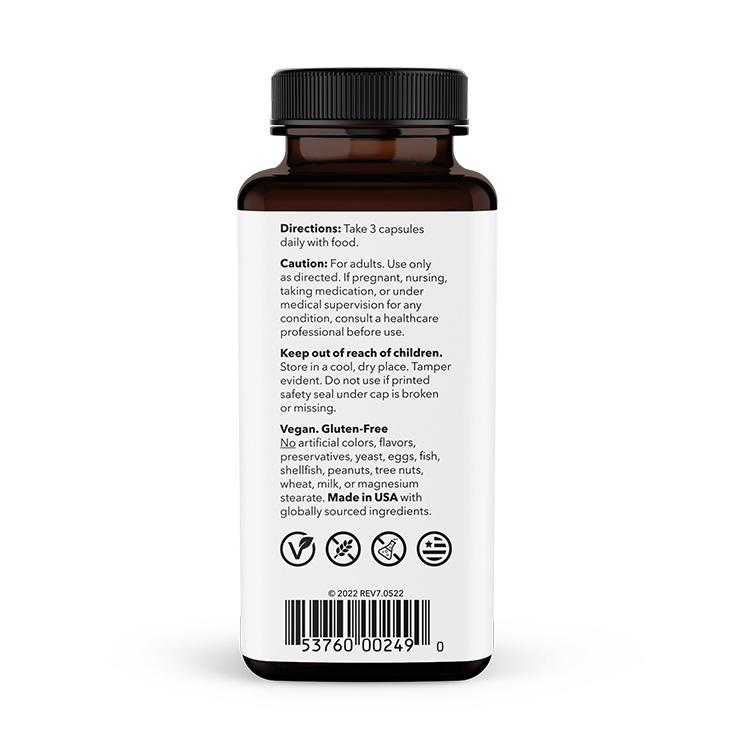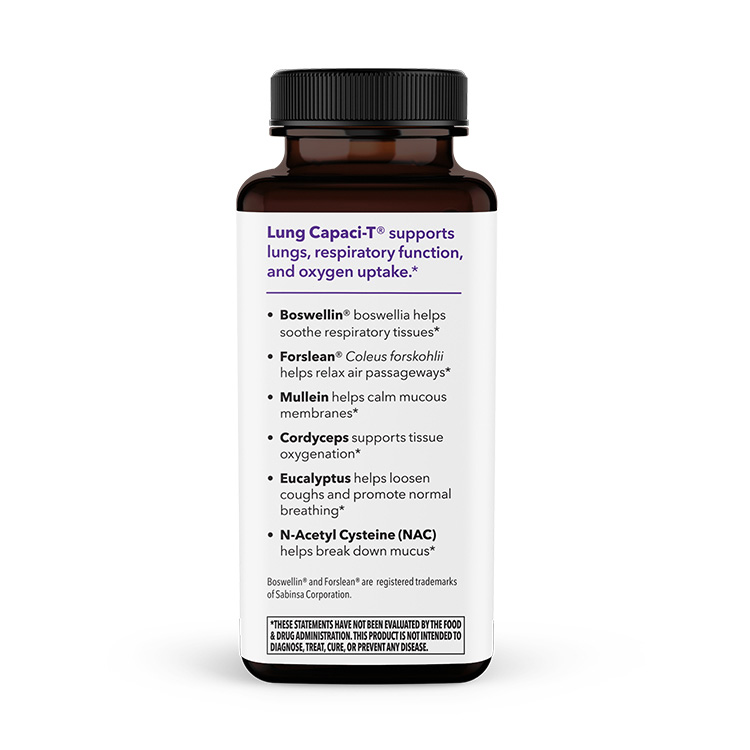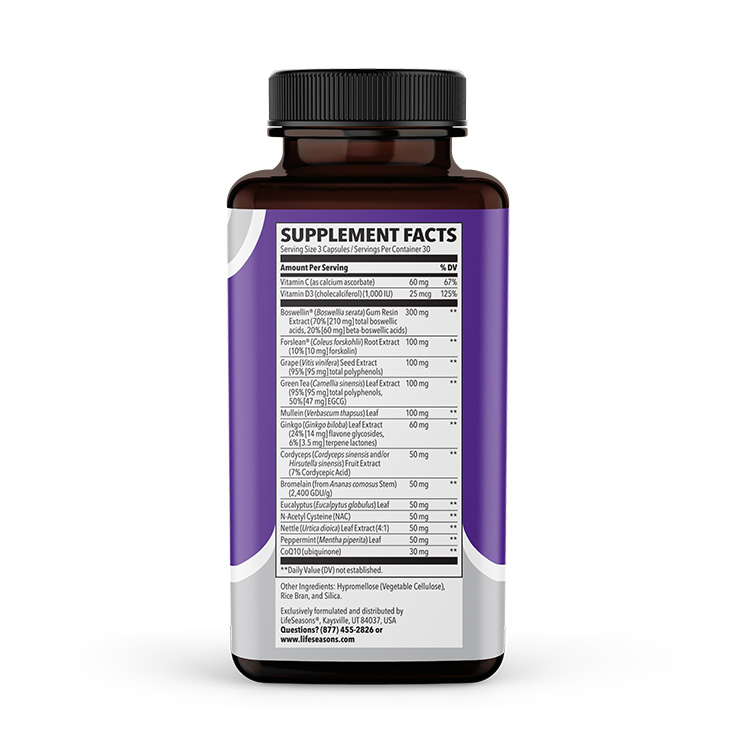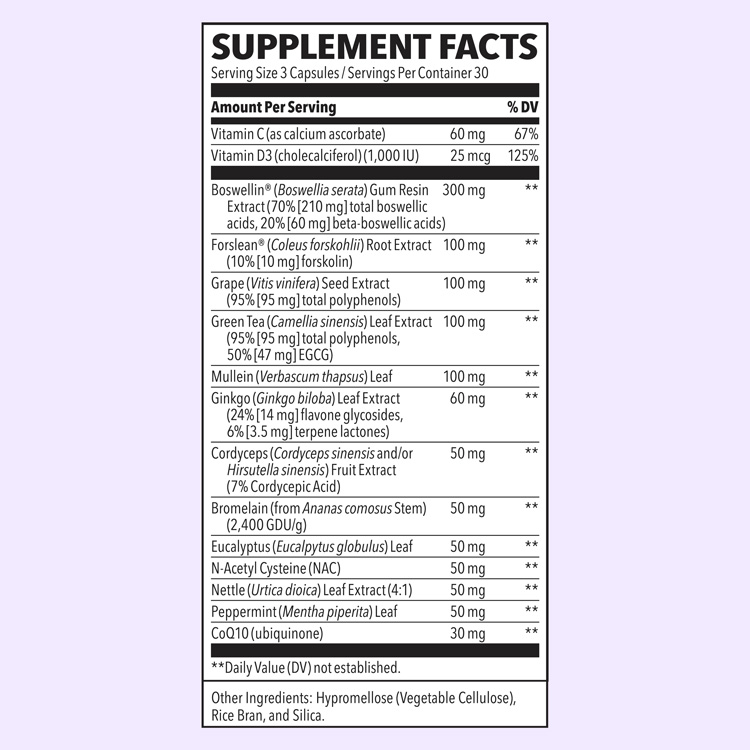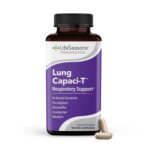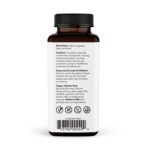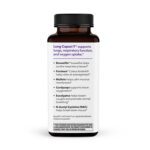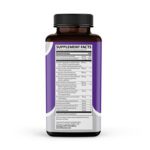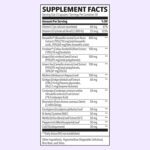Description
What to Expect

3 CAPSULES

DAILY

WITH FOOD

Breathe Deeply
Contains cordyceps, which are rich in antioxidants and have been shown to improve overall volume of oxygen taken in by the lungs.

Helps Thin Mucus
Mullein has been used traditionally to soothe lungs by calming mucous membranes.

Common Results
Customers often report a reduction in breathing difficulties within 30 minutes. More significant results can be felt after using daily over an extended period of time, specifically 1 to 2 months or longer.
LUNG CAPACI-T
Health Benefits
Lung Capaci-T increases oxygen uptake in the lungs and helps thin mucus. It also soothes the respiratory tract.
Common Supplement Results
Lung Capaci-T usually helps with breathing difficulties within 30 minutes of taking it. Most people experience an opening of the lungs, the ability to take in deeper breaths and a reduction in phlegm. Even greater results are typically seen when taking this product over a longer period of time, specifically for 1-2 months.*
Everyone is different, and results will vary from person to person. The key is to maintain consistent use every day to see best results.*
Suggested Use
Take three capsules with or without food.
Why We Created Lung Capaci-T
Breathing is so automatic, we rarely think about it. As we breathe, oxygen moves into the lungs, then passes into tiny sacs called alveoli. From the alveoli, oxygen diffuses into the blood, and combines with hemoglobin in red blood cells. The red blood cells transport oxygen from the blood vessels to the cells of the body for energy production. When we have shortness of breath, less oxygen is moving into our cells, which can result in impaired cellular function. Decreased lung capacity can increase inflammation, and cause a lack of energy and endurance. It also impacts our ability to focus and concentrate.
That’s why we created Lung Capaci-T, to help improve respiration, and to support our lung’s ability to transport oxygen. Lung Capaci-T is a nutritional tonic, with many nourishing ingredients to help promote healthy breathing.
We use Vitamins D-3 and C, along with CoQ10, N-Acetyl Cysteine, Boswellia, Mullein, Green Tea, Coleus Forskohlii, Grape Seed, Ginkgo, Cordyceps, Bromelain, Eucalyptus, Nettle, and Peppermint to soothe the respiratory tract and to help thin mucus.









